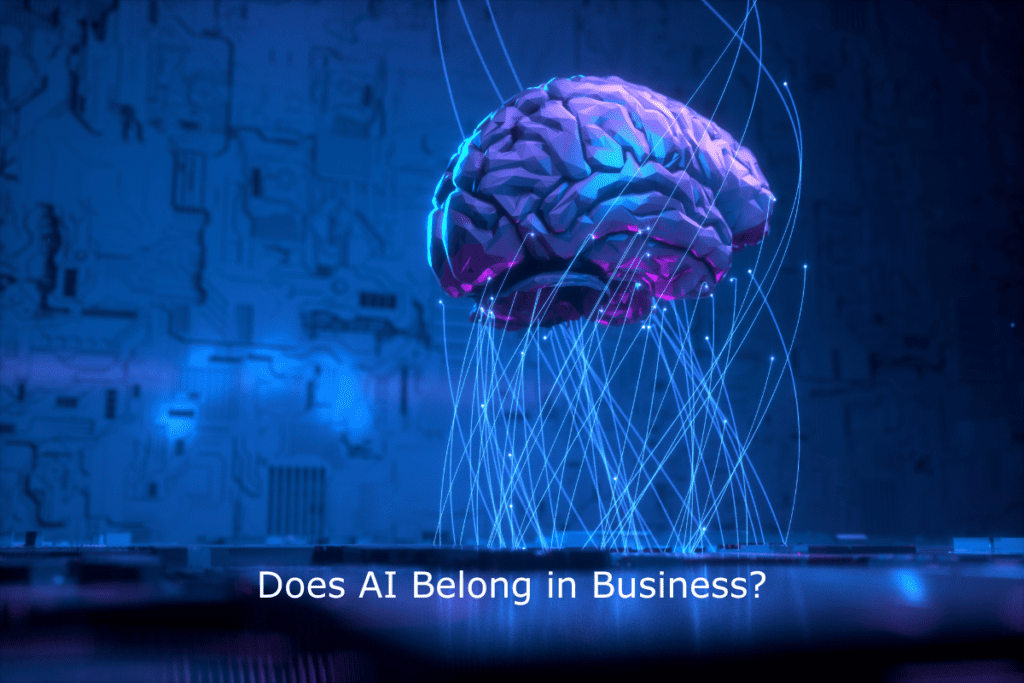Let’s cut right to the chase. Is AI in business a groundbreaking revolution or just another way to make humans even more obsolete? Before we had Alexa ignoring our song requests, automation in business was making old-school processes look like dinosaur fossils. Steve Jobs once described the personal computer as a “bicycle for the mind,” making humans much more efficient than they were before. AI is the hotshot these days, running the show from behind a curtain of ones and zeros. Let’s pull back that curtain and see whether these digital wizards are worth the hype, or just some new-fangled fancy calculators.
Automation’s Legacy: Think back to the days when dial-up internet was a thing—yep, it was as slow as a snail on tranquilizers. Automation back then was about as sophisticated as a toaster. Fast-forward, barely 40 years, and now we’ve got AI that not only knows our thoughts (thanks, algorithms) but can also predict the course of a disease and assist in the treatment plan. It’s like upgrading from a tricycle to a Tesla overnight.
Customer Segmentation: AI in customer segmentation is kind of like having a stalker, but you know, the kind that helps you sell stuff. It digs through piles of customer data faster than a conspiracy theorist through government files. It’s not just quick; it’s eerily accurate, crafting profiles that marketers used to only dream about while stuck in budget meetings.
Chatbots: Your Quirky Digital Receptionists: Ever had a chat with customer service at 3 AM? That’s not some insomniac employee—it’s a chatbot. They’re the unsung heroes who don’t need bathroom breaks or healthcare benefits. While they’re great at answering “Where’s my stuff?” at ungodly hours, try asking them something more complex, and you might just get to enjoy the robotic existential crisis that follows. As quickly as I write this sentence however, generative AI is as quickly reshaping these chatbots into “smarter” employees.
Dynamic Pricing: This just seems to me to be AI’s Way of Playing God. Dynamic pricing is AI’s sneaky method of getting you to pay more for that ride home just because it’s raining out. It adjusts prices with a finesse that would make stock traders blush, reacting to demand faster than you can say “surge pricing is a rip-off.” And these days it’s not just rideshare thats implementing it, even your local fast food chain is jumping on the bandwagon.
Me and My AI Minions: In my virtual assisting empire, AI tools aren’t just handy; they’re my little minions. Here’s how these little lackeys keep me in check and maximize my productivity:
- Task Management and Scheduling: I use Motion, an AI tool so efficient, I feel like my body double gets work done too! But seriously, with a little time spent inputting your particular needs it is fantastic at keeping projects on track without the need for alarms, reminders, or paper planners.
- Content Creation Assistance: I team up with ChatGPT, WordHero, and Grammarly, my trusty ghostwriters in the cloud. These tools not only save me from the mental tedium of crafting pithy social media posts across various voices, but they also ensure my blogs are as engaging as a caffeine-fueled all-nighter for the audiences they serve. Beyond just generating content ideas, they assist in maintaining a consistent brand tone. Once properly trained, these AI assistants are invaluable, especially when I’m staring down both a blank page and a looming deadline. They’re not just tools; they’re lifelines in the digital sea of content creation.
- SEO Mastery: I wield RivalFlowAI to navigate the murky waters of SEO, strategizing like a savvy real estate mogul aiming to secure prime property on search engine results pages. With this tool, I position my clients to snag those high-value spots at the top of the SERPs, ensuring they’re not just on the map, but in the most coveted locations where the competition can’t easily overshadow them.
Wrapping Up: So, does AI really belong in business? Sure, if you’re into the idea of creating our future robot overlords. But all jokes aside, these tools are transforming how we work—making operations smarter, predictions more accurate, and yes, making some jobs as obsolete as fax machines, but it will also open up a new landscape of work. What’s your take? Drop your thoughts below—let’s get this dystopian party started!




